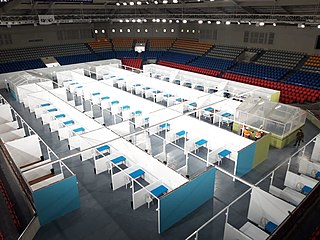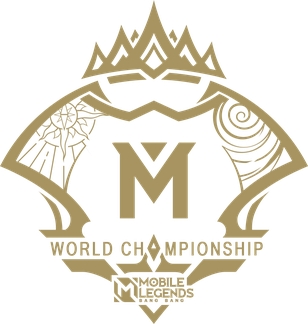
The Philippine Basketball Association (PBA) is a men's professional basketball league in the Philippines composed of twelve company-branded franchised teams. Founded in 1975, it is the first professional basketball league in Asia and is the second-oldest continuously operating professional basketball league in the world after North America's NBA.
Allan Vito Flores Caidic is a Filipino former professional basketball player, coach and executive who is currently serving as consultant for San Sebastian Stags. He is considered by many to be the greatest shooter the country has ever produced, thus, earning the moniker, "The Triggerman".

The 1954 Asian Games, officially known as the Second Asian Games – Manila 1954 was a multi-sport event held in Manila, Philippines, from May 1 to 9, 1954. A total of 970 athletes from 19 Asian National Olympic Committees (NOCs) competed in 76 events from eight sports. The number of participating NOCs and athletes were larger than the previous Asian Games held in New Delhi in 1951. This edition of the games has a different twist where it did not implement a medal tally system to determine the overall champion but a pointing system. The pointing system is a complex system where each athlete were given points according to their achievement like position in athletics or in swimming. In the end the pointing system showed to be worthless as it simply ranked the nations the same way in the medal tally system. The pointing system was not implemented in future games ever since. Jorge B. Vargas was the head of the Philippine Amateur Athletic Federation and the Manila Asian Games Organizing Committee. With the second-place finish of the Philippines, only around 9,000 spectators attended the closing ceremony at the Rizal Memorial Stadium. The events were broadcast on radio live at DZRH and DZAQ-TV ABS-3 on delayed telecast.
The Philippines national football team represents the Philippines in international football, governed by the Philippine Football Federation (PFF) and has been playing internationally since 1913.
The Philippines men's national basketball team, commonly known as Gilas Pilipinas, is the basketball team representing the Philippines. The team is managed by the Samahang Basketbol ng Pilipinas.

The 2005 Southeast Asian Games, officially known as the 23rd Southeast Asian Games, was a Southeast Asian multi-sport event held in Manila, Philippines.

Sports in the Philippines is an important part of the country's culture. There are six major sports in the Philippines: basketball, boxing, tennis, football, billiards, and volleyball.
The Philippines women's national football team represents the Philippines in international women's association football competitions. It is managed by the Philippine Football Federation (PFF), the sport's governing body in the country.

The FIBA Asia Cup is an international basketball tournament which takes place every four years between the men's national teams of Asia and Oceania.

Dionisio "Chito" Calvo was a Filipino basketball player, swimmer, and coach who mentored both the basketball and football national teams of the Philippines. He was one of the greatest Filipino sportsmen in history and helped in the development of both Philippine and Asian basketball.

The Rizal Memorial Track and Football Stadium is the main stadium of the Rizal Memorial Sports Complex in Manila, Philippines. It served as the main stadium of the 1954 Asian Games and the Southeast Asian Games on three occasions. The stadium is also officially the home of the Philippines national football teams and domestic matches.

The Philippines has competed in every edition of the Summer Olympic Games since its debut in the 1924 edition, except when they participated in the American-led boycott of the 1980 Summer Olympics. Filipino athletes have also competed at the Winter Olympic Games on six occasions since 1972.

The Philippines is a member of the South East Asian Zone of the Olympic Council of Asia (OCA), and has participated in the Asian Games since their inception in 1951. The Philippine Olympic Committee, established in 1911, and recognized in 1929 by the International Olympic Committee, is the National Olympic Committee for Philippines.

The Philippines made its Paralympic Games debut at the 1988 Summer Paralympics in Seoul and has been fielding athletes up to the 2020 Summer Paralympics in Tokyo. Its athletes has won two bronze medals; Adeline Dumapong in powerlifting (2000), and Josephine Medina in table tennis (2016). The country has never won a Paralympic gold medal.
The Philippines women's national volleyball team represents the Philippines in international volleyball competitions and friendly matches, governed by the Philippine National Volleyball Federation since 2021.
The Philippines national under-23 football team represents the Philippines in international football competitions in the Olympic Games, Asian Games, Southeast Asian Games and any other under-23 international football tournaments. It is controlled by the Philippine Football Federation, the governing body of football in the country.

The 2019 Southeast Asian Games, officially known as the 30th Southeast Asian Games, or the 30th SEA Games, and commonly known as Philippines 2019, was the 30th edition of the Southeast Asian Games, a biennial regional multi-sport event which was held in the Philippines from 30 November to 11 December 2019. However, due to a narrow calendar, some sports started before the opening ceremony as early as November 24.

The Philippines participated at the 2018 Asian Games in Jakarta and Palembang, Indonesia from 18 August to 2 September 2018. The country won 21 medals to finish 19th overall in the medal tally of the games; an improvement from 22nd place placement of the country in the previous 2014 edition. However this came short of the 15th place target set by officials who deemed the actual placement as acceptable. Two of the Philippines' gold medal came from golf, while the other two came from weightlifting and skateboarding.

The COVID-19 pandemic had a significant impact on the conduct of sports in the Philippines affecting both competitive sports leagues and tournaments and recreational sports.

The Mobile Legends: Bang Bang World Championship is the annual professional Mobile Legends: Bang Bang world esports championship tournament for the game wherein teams worldwide would be facing off each other to become the world champion for Mobile Legends: Bang Bang. The yearly tournament is presented by Moonton and has been held five times.











